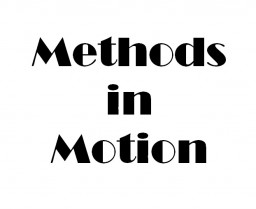
Methods are ways of knowing, and they are always changing. Academics have recently become highly methodologically creative, inventing a swathe of new practical ways of knowing about social life. Yet we at CCIG would argue that researchers must go beyond meeting the intensified demand for new methods. Methods are important because what we know is changed by how we know it. Furthermore, the reasons why someone uses a particular method are linked to their wider ends and means; what makes useful knowledge in that specific field. Increasingly, the critical task for social scientists is to reflect upon the consequences that are set in motion by methods.
Researchers experiment – and have always experimented - with different modes of creating knowledge and meaning. Today, governmental institutions and commercial agencies are demanding and developing new methods to gather and interpret data. The trend has been exponential with electronic forms of data collection, creating ‘big data’ which can – and must - be analysed in new ways. These data and attached methods aim to know and generate particular forms of public and commercial benefit. Likewise, social movements that seek to popularise new ways of living need to know if their actions are having the desired effect. For example: do their events and newsletters actually create volunteers and change opinion? In short, methods are designed and implemented for reasons that go beyond a general desire to create ‘more information’, or just the technical ability to investigate a topic.
New methods never entail simply technical adjustments, or stem from a requirement for new expertise. As such, we would argue that the key challenge - when studying how methods are changing - is to understand the implications for knowledge creation and meaning. This means understanding methods as social accomplishments. In turn, these social accomplishments can be analysed as influencing and being influenced by citizenships, identities, and modes of governance. As such, Methods in Motion aims to develop a cross-disciplinary research focus on Methods in Motion. The driving force of CCIG’s cross cutting theme is the ethos that a sensitivity to how methods enact power differences, in terms of discriminations and violence, can also create possibilities for open and inclusive social change.
Forging new worlds through interdisciplinary research
Over the series of blogs, our key methodological question will be to ask how methods can shape the state of the world, rather than simply describe how the world is constituted, or monitor its workings. We will discuss how methods do not only have technical requirements and objective datasets; they have causes and effects which are social, political and psychological. These discussions aim to address a need to venture beyond knowledge on how to technically use methods and evaluate research findings. Our work will explore what methods do when they are deployed. To this end, we propose ‘methods in motion’ as both a practice and an object of study. Our aim is to understand how society engages with methods and data generation, and the implications of this engagement for practices of citizenship, identities and governance. We will proceed in this discussion with reflections about our own work.
This critical approach is necessary for a number of reasons. Firstly, much methodological development is focused on gaining new access to situations. However, this often ignores the power dynamics expressed and the structures established in the practical carrying-out of methods. So we look to question the consequences of different methods’ application, and the reconfigurations required to apply them in different situations. Secondly, mirroring changes in wider society, many new methods use new information technology to investigate situations which were previously inaccessible. Beyond gaining access to the physically hard-to-reach, we can now address many situations that were previously too fleeting, long-term, intimate or dispersed to investigate. Thirdly, some methods simply did not exist before recent technological advances: big data and networked social media data are markedly different to the material (and governance) of large census surveys (although nothing is entirely without precedent). Of course, no theorist of social networks could investigate the specificities of Facebook until it came into existence! Fourthly, the proliferation of new methods does not imply that more longstanding methods are natural or unchanging. We still need to critically evaluate the implications of more established methods and the transformations that take place when they are applied to new situations. Overall, it is crucial to explore what methods set in motion.
We invite you to join us on the journey.
Written with acknowledgements to a whole group of researchers in CCIG who participated in the development of these ideas, and in particular the Methods research programme, initially led in 2014-15 by former CCIG Director, Professor Jef Huysmans.
Methods In Motion
The Methods in Motion blogs are by researchers linked to the Centre for Citizenship, Identities and Governance. The blogs represent their opinions emerging from research in progress, and do not necessarily represent the views of the Research Centre or Open University. You can discover more about Methods in Motion on the CCIG website.





Rate and Review
Rate this article
Review this article
Log into OpenLearn to leave reviews and join in the conversation.
Article reviews